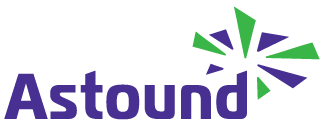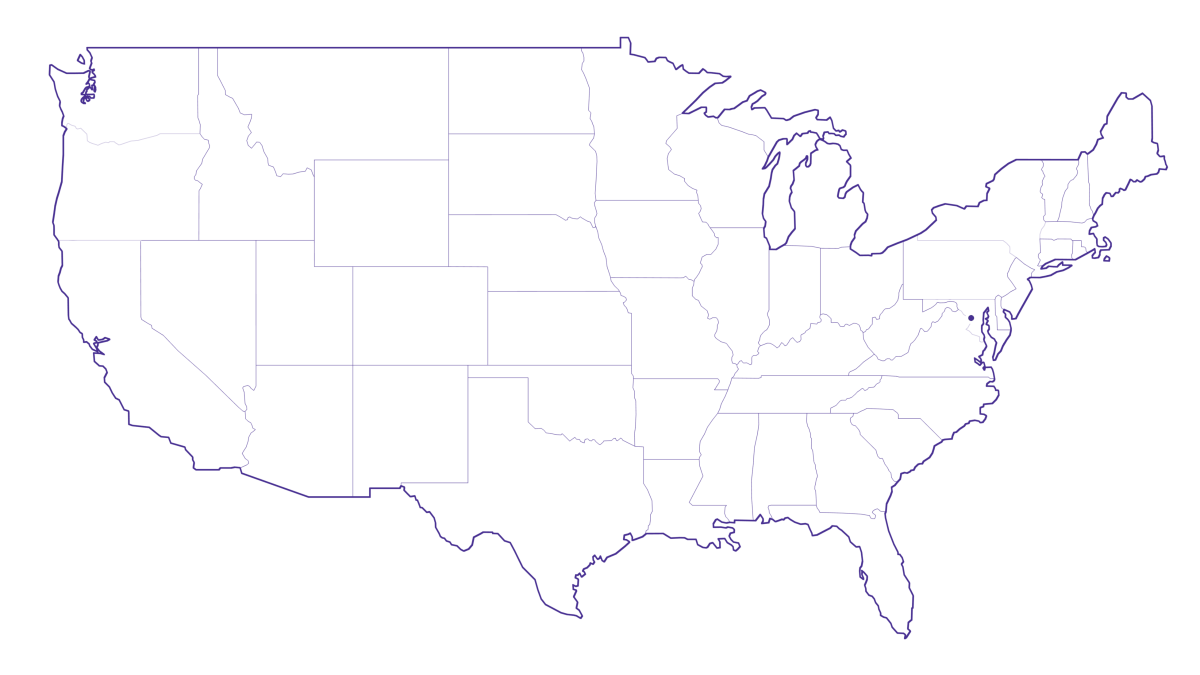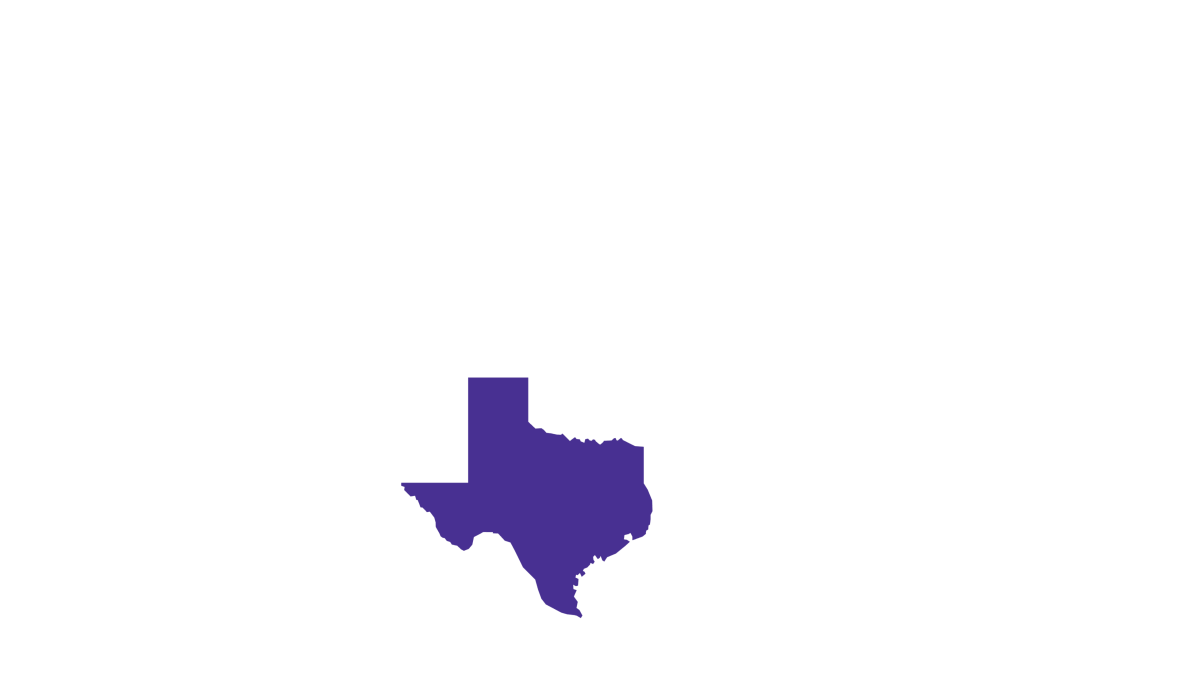How much data do I need for home internet?

Most internet service providers (ISPs) offer data plans with either unlimited data or a fixed data limit. When choosing a plan, understanding the average data usage of your home isn’t always easy.
Data is the digital content you browse, upload or download online, including for working from home, streaming and online gaming. It is measured in Megabytes (MBs) and Gigabytes (GBs), with most online activities using small amounts of data. It’s important to track your data to avoid extra charges, data throttling or data caps.
If you’re wondering what monthly internet data plan you need for your household, we’re here to help. In this article, we’ll explore how much data you need for internet activities at home.
Mobile + Internet + TV
Switch to Astound
Get Astound Mobile, Internet and TV—and save on the best services available.
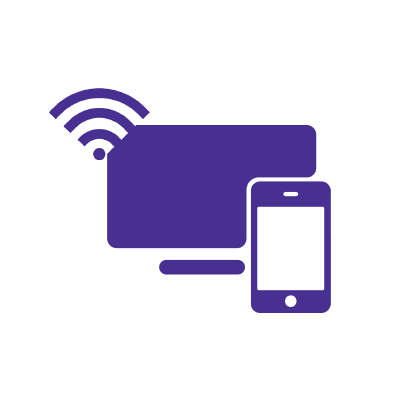
Average data usage statistics
Average internet data use has been increasing over the last few years, with the most recent research from OpenVault showing that American households use about 590 Gigabytes of data per month.
As more people access 4K streaming, online games, work remotely and integrate more smart home devices, monthly data consumption may surpass a terabyte in the coming years, especially as demand grows for AI, VR and ultra-high-definition content.
How much internet data you need at home
Knowing exactly how much internet data you need at home is helpful to understanding which plan you should purchase. Let’s look at some of the most common activities and their monthly data requirements.
Internet data usage by activity
| Activity | Monthly data requirement | Recommended speed |
|---|---|---|
| Web browsing | 6 Gigabytes | At least 300 Mbps |
| Online gaming | 15 Gigabytes | At least 600 Mbps - 1 Gbps |
| HD streaming | 320 Gigabytes | At least 300 - 600 Mbps |
| 4k streaming | 2.7 Terabytes | At least 1 - 1.5 Gbps |
| Music streaming | 3.3 Gigabytes | At least 300 Mbps |
| Home security cameras | 60 - 100 Gigabytes | At least 600 Mbps - 1 Gbps |
|
Activity
Web browsing |
Monthly data requirement
6 Gigabytes |
Recommended speed
At least 300 Mbps |
|
Activity
Online gaming |
Monthly data requirement
15 Gigabytes |
Recommended speed
At least 600 Mbps - 1 Gbps |
|
Activity
HD streaming |
Monthly data requirement
320 Gigabytes |
Recommended speed
At least 300 - 600 Mbps
|
|
Activity
4k streaming |
Monthly data requirement
2.7 Terabytes |
Recommended speed
At least 1 - 1.5 Gbps |
|
Activity
Music streaming |
Monthly data requirement
3.3 Gigabytes |
Recommended speed
At least 300 Mbps |
|
Activity
Home security cameras |
Monthly data requirement
60 - 100 Gigabytes |
Recommended speed
At least 600 Mbps - 1 Gbps |
Different online activities use various amounts of data, from 6 GB for web browsing to 2.7 TB for 4K streaming, with speeds ranging from 300 Mbps to 1.5 Gbps.
For the best experience, and if you engage in simultaneous activities such as HD streaming and gaming, choose a plan that meets your highest data and speed needs.
Internet data usage by users
| Activity | Monthly data requirement | Recommended speed |
|---|---|---|
| 1 light user | 200 Gigabytes | 100 - 300 Mbps |
| 2 light users | 300 Gigabytes | 100 - 300 Mbps |
| 2 users | 600 Gigabytes | 300 - 600 Mbps |
| 3 - 4 users | 1 Terabyte | 600 Mbps - 1 Gbps |
| 5 - 6 users | 1 - 1.5 Terabytes | 1 Gbps - 1.5 Gbps |
| 7 - 8 users | 1.5 Terabytes or more | 1.5 Gbps or more |
|
Activity
1 light user |
Monthly data requirement
200 Gigabytes |
Recommended speed
100 - 300 Mbps |
|
Activity
2 light users |
Monthly data requirement
300 Gigabytes |
Recommended speed
100 - 300 Mbps |
|
Activity
2 users |
Monthly data requirement
600 Gigabytes |
Recommended speed
300 - 600 Mbps |
|
Activity
3 - 4 users |
Monthly data requirement
1 Terabyte |
Recommended speed
600 Mbps - 1 Gbps |
|
Activity
5 - 6 users |
Monthly data requirement
1 - 1.5 Terabytes |
Recommended speed
1 Gbps - 1.5 Gbps |
|
Activity
7 - 8 users |
Monthly data requirement
1.5 Terabytes or more |
Recommended speed
1.5 Gbps or more |
Internet usage varies based on the number of users and their online activities.
A light user browsing the web and checking emails may only need 200 GB per month, while a household of 7 – 8 users streaming, gaming and using multiple smart devices may require 1.5 TB or more.
Find your speed
What speed do you need?
Maybe you just need the essentials—or maybe you need to unleash the ultimate internet speed. Explore your options to get the best experience for every device in your home.
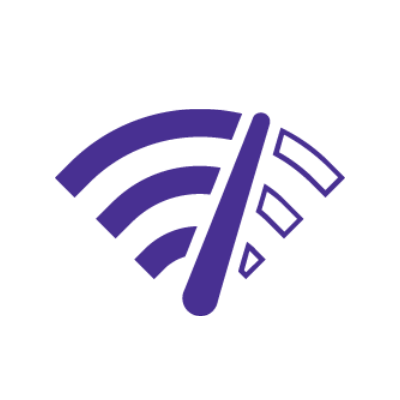
What factors affect data requirements?
Many factors can affect data requirements, such as the device type, your internet speed, which applications you’re using and any device upgrades or general network changes.
Device type
Your device type can determine what activities you can do online, as well as how much data those activities consume. Smartphones, for example, may use less data for streaming than a smart TV; however, a connected gaming console or 4K streaming device may require significantly more bandwidth.
Internet speed
Faster internet speeds can lead to higher data consumption, especially for streaming, gaming and downloading large files. Many apps automatically adjust quality based on speed, so a high-speed connection may default to HD or 4K streaming, consuming more data than a slower connection.
Application usage
Different applications use varying amounts of data. Streaming in 4K, gaming and video calls require significantly more data than web browsing or messaging apps. Background app updates and cloud backups also contribute to overall data usage.
Device upgrades and network changes
Upgrading to a newer phone, laptop or smart device can increase data usage due to higher-resolution displays, automatic cloud syncing or updated software with more data-intensive features.
In addition, changes to your home network, such as adding smart home devices, mesh networks like eero, security cameras or additional users, can also impact overall data consumption.
WiFi that just works!
WiFi plans for any home
Tiny, large or somewhere in between; find WiFi coverage to fit any space. Blanket your entire home with a fast and ultra‑reliable connection.
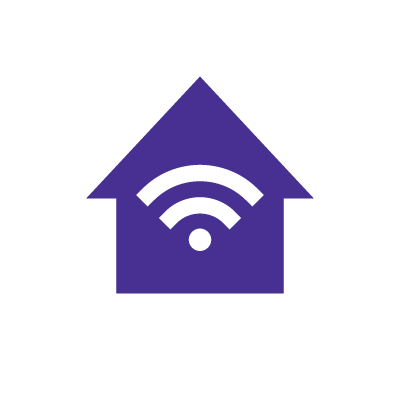
Understanding types of internet connections and data caps
Depending on your type of internet connection, providers may throttle your internet connection once a data cap is reached. Let’s review some of the most common internet connections and their data caps.
Cable vs. Fiber
Fiber and cable internet offer reliable low latency high speed Gigabit connections, making them perfect for data-intensive activities such as streaming, gaming and video conferencing.
Learn more: Fiber optic vs cable internet: Differences explained
Dome internet providers have data caps, with the threshold averaging around 880 Gigabytes, while others, like Astound, offer unlimited data.
| Provider | Monthly data cap | Overage fees |
|---|---|---|
| Xfinity | 1.2 Terabytes | $10 per 50 Gigabytes |
| Cox | 1.28 Terabytes | $10 per 50 Gigabytes |
| Xtream | 1 Terabyte | $20 per 50 Gigabytes |
| Buckeye Broadband | 250 Gigabytes | $15 per 50 Gigabytes |
| Sparklight | 700 Gigabytes | – |
|
Provider
Xfinity |
Monthly data cap
1.2 Terabytes |
Overage fees
$10 per 50 Gigabytes |
|
Provider
Cox |
Monthly data cap
1.28 Terabytes |
Overage fees
$10 per 50 Gigabytes |
|
Provider
Xtream |
Monthly data cap
1 Terabyte |
Overage fees
$20 per 50 Gigabytes |
|
Provider
Buckeye Broadband |
Monthly data cap
250 Gigabytes |
Overage fees
$15 per 50 Gigabytes |
|
Provider
Sparklight |
Monthly data cap
700 Gigabytes |
Overage fees
– |
Data accessed from providers’ websites on February 25th, 2025.
Mobile data and hotspots
While they offer convenient, on-the-go internet access, mobile hotspots aren’t a substitute for home networks. Most mobile data plans include hotspot limits between 5 GB and 20 GB per month, with slower speeds and limited bandwidth compared to the Gigabit speeds offered by typical home internet plans.
5G home internet
An alternative to traditional internet connections, 5G home internet provides fast, cable- and fiber-free internet connections. However, network congestion, bad weather and distance from cell towers can affect 5G’s internet speeds.
During network congestion, 5G home internet providers may implement data caps to prioritize mobile network users, leading to slower internet speeds in your home.
Satellite
Satellite internet connections provide internet access from satellites orbiting the Earth. Satellite internet imposes stricter data caps, generally lower than fiber and cable.
Once you reach these caps, providers typically throttle speeds during peak times. In addition, satellite internet has higher latency than fiber and cable, making engaging in real-time applications like online gaming, streaming and video calls more challenging.
DSL
DSL internet, a type of internet connection delivered over traditional telephone lines, provides consistent but slower speeds than fiber or cable. DSL might be suitable for light browsing and basic streaming, but higher latency and slower speeds can impact heavy data usage and real-time applications. Data caps vary by provider.
Check for service
Get internet service that delights
Astound is ranked among the best for overall satisfaction*. When it comes to download speed and quality, Astound more than delivers.

Tips for managing home internet data
Efficient data management ensures a smooth internet experience while avoiding slow speeds or extra charges. Here are some key tips to help you optimize your data use.
Understand your data needs
To determine how much data you need, consider how many people in your household regularly use the internet and the types of online activities they engage in, such as streaming HD or 4K content, gaming or working from home.
Additionally, anticipate future increases in data usage, especially if you plan to add devices or use more data-intensive applications.
Monitor your data usage
If you want to determine whether an unlimited plan is ideal for your household, track your data. Monitoring your home network data usage is essential as it helps you identify and resolve problems caused by unauthorized access or malware.
eero Plus offers a practical and affordable home WiFi security solution with traffic monitoring features that help protect against online threats and ensure a secure, safe internet environment
Use eero’s device settings or your ISP’s app to monitor consumption, peak usage times and how close you get to your data cap.
Optimize streaming and gaming habits
When streaming or gaming, you can reduce your data usage by lowering video streaming quality, enabling data saver modes and downloading content for offline viewing. For gaming, limit automatic updates, disable background downloads and optimize online play settings.
Adjust device settings
Save data by enabling data saver modes, reducing background app activity and only downloading or running updates over WiFi when absolutely necessary.
Adjust streaming and download settings to lower quality when needed. As a last resort, you may need to update your router to get the most out of your internet plan.
Build your plan
Your perfect plan is just a click away
Get the speeds, WiFi, mobile and TV plans you need all at an affordable price. Bundle your services with Astound and see how much you can save.
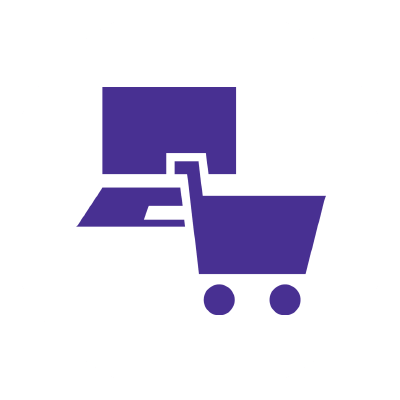
Do I need an unlimited internet data plan?
Whether an unlimited internet plan is necessary depends on your household’s data usage and speed requirements. Unlimited plans ensure multiple devices stay connected, regardless of users or online activities.
However, if you’re not frequently streaming 4K content, gaming or sharing large files, you may never reach your data cap on fiber or cable internet.
Mobile data, on the other hand, follows different rules. If you stream, video call, game or use your phone as a hotspot regularly, an unlimited mobile plan may be ideal.
To get the best of both worlds, consider bundling home internet and mobile services. Bundles provide reliable home connectivity, mobile flexibility and potential cost savings, ensuring seamless internet access across all your devices.
Create the perfect bundle
Get the speed, WiFi, mobile and TV that’s just right for you.
*Internet speeds vary, not guaranteed. Certain equipment may be required. See astound.com for details. Modem req’d. No contracts. Astound Internet is powered by fiber and connected to the premises via coaxial connection or fiber, where available. Delivery methods may vary by area. Subject to availability. Ltd-time offer; subj. to change without notice. Internet speeds under 1 Gig, pricing valid for 12 mos. Gig+ Internet speeds, pricing valid for 36 mos. Add’l fees apply for taxes, surcharges, & data overages, & are subj. to change. For details visit astound.com/fees. Enhanced WiFi or Whole Home WiFi included with Gig+; $5/mo for lower speeds or add’l devices. Regular rates apply after promo ends. Monthly price shown includes discount for enrolling in autopay & e-bill. $10 off/mo w/ bank acct autopay or $5 off/mo w/ credit/debit card autopay. Valid email & enrollment req’d. Must enroll w/in 30 days of order. Discount appears within 3 bill cycles, ends if autopay/e-bill is canceled, svcs change, or acct isn’t in good standing. ^Astound Mobile req’s Astound Internet service for activation. Max 5 lines. Equip., intl./roaming charges, taxes, fees extra & may change. Astound not liable for svc disruptions or outages. Higher rate applies if Internet not maintained. Mobile svc only in Astound areas. Pricing subj. to change. Data may slow during congestion. After 20GB, Unlimited plans slow to 768 Kbps; 1.5GB/3GB plans capped. No rollover; add’l data $10/GB. Coverage varies. Some features may require specific plans. Mobile svc includes BIAS w/ data, voice, texts & SMS. Other restrictions may apply. See astound.com/mobile for details. Offer valid for new res. customers or former customers in good standing w/out Astound svc in past 60 days. Add’l svcs, equip, premiums & tiers extra & subject to add’l charge & reg. increases. $14.99 one-time activation fee (plus install) applies & may change. Taxes & surcharges extra & subj. to change. WA RESIDENTS: unless otherwise specified, price does not include 2% Regulatory Administration Fee. Cust. responsible for any accrued charges. Subj. to credit check. Not all svcs/speeds avail. in all areas. 30-Day Money-Back Guarantee for new residential customers who cancel within 30 days of install. Maximum refund is equal to one month’s monthly recurring service fee of services & equip. ordered & installed. Refund within 60 days after conditions are satisfied. Refund not applicable to usage-based fees. All svcs are governed by Astound Customer Terms & Conditions found at astound.com/policies-disclaimers. © 2026 Radiate HoldCo, LLC d/b/a Astound Broadband. All rights reserved.
While we have made every attempt to ensure that the information contained in this site has been obtained from reliable sources, Astound is not responsible for any errors or omissions, or for the results obtained from the use of this information. All information in this site is provided “as is”, with no guarantee of completeness, accuracy, timeliness and without warranty of any kind, express or implied, including, but not limited to warranties of performance, merchantability and fitness for a particular purpose. Certain links in this site connect to other websites maintained by third parties over whom Astound has no control. Astound makes no representations as to the accuracy or any other aspect of information contained in other websites.
eero Plus is available for an additional $9.99/month and requires subscription to whole home WiFi powered by eero.
